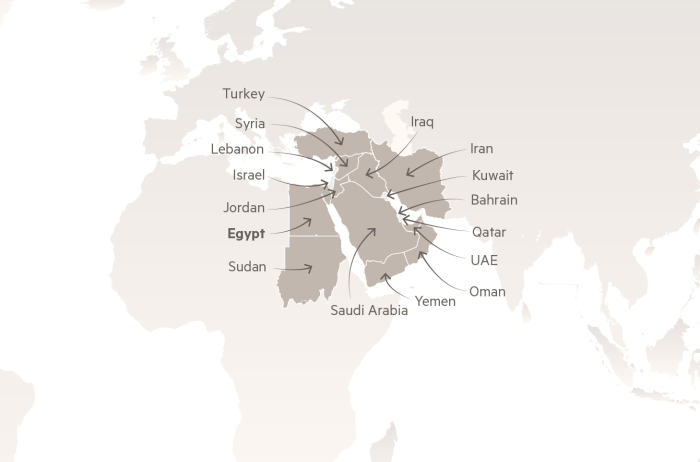Dawi aims to become Egypt’s medical ‘Starbucks of clinics’ chain

Roula Khalaf, Editor of the FT, selects her favourite stories in this weekly newsletter.
In 2015, Egyptian entrepreneur Magda Habib was poised to slow down her professional life, having recently sold Fawry, the electronic payments company she co-founded six years previously.
However, her thoughts of stepping back were quashed when, a tech entrepreneur and friend, suggested they launch a company that would be the “Starbucks of clinics”, inspired by healthcare chains in the US.
“We brainstormed and talked to doctors, and it started growing on me that this was a really interesting idea to which I could bring my experience in brand building and operations management,” says Ms Habib, co-founder and chief executive of Dawi Clinics. “It was exciting and scary.”
Sitting in the seventh and latest branch of Dawi to open in Cairo in the densely-populated district of Shobra, Ms Habib explains that within months of the conversation with Mr Iskander, she plunged into preparations for an affordable healthcare company aimed at middle class families. The pair then teamed up with Mairose Doss, a doctor and Dawi’s third co-founder, and raised an undisclosed amount from private investors in their first round of funding.

Dawi’s aim is to fill a gap in the Egyptian market — to cater to the wide swath of Egyptians who cannot afford high quality private healthcare but want a better service than the free but often inadequate government-provided medical care.
Dawi’s clients, says Ms Habib, are “employed people who cannot spend hours waiting at a doctor’s office, but also they cannot afford to pay E£400 ($25) every time one of their children has a cough. They make up a large segment of people.”
Once a reservation is made through a call centre, a doctor’s consultation at Dawi costs about $10. Patients can also expect to be seen on time — something that is unusual in Egypt’s healthcare sector, where long waits are commonplace. Dawi patients receive a free 10-minute wellness check-up with a family doctor on their first visit, even if they are seeing a dentist. Ms Habib says this helps uncover problems early on, helping the client stay healthy and reducing the burden on their budget.

The aim, says Ms Habib, is to offer a quality “patient-centric service” that is convenient and affordable but which avoids the bad practices that are prevalent in the Egyptian healthcare sector. To that end, Dawi’s medical records are computerised, clinical guidelines are standardised and modelled on international best practice, and full-time doctors are salaried. This feature eliminates the temptation to persuade patients to undergo unnecessary treatments or procedures.
“We’re asking doctors to be ethical and that creates pressure on revenue, but building and maintaining patient trust will eventually earn us more,” she says.
The clinics are staffed full-time with internists, paediatricians and dentists, while services from dermatologists, gynaecologists, orthopaedic doctors and neurologists are offered on a part-time basis. “We’re trying to make the branches profitable, but this is a business based on volume, so I need 10-15 busy branches to start making a profit,” she says. “We want branches to start to be profitable by the end of next year.”

Although the company is still in the red — Ms Habib says it is operating at 15 per cent of capacity — Dawi has already turned down a takeover offer from an undisclosed party. Ms Habib says the offer to exit came too early and the buyer was not the right fit. Instead, Dawi secured a $3m investment from the Egyptian American Enterprise Fund, established by the US government to invest in Egypt’s private sector.
James Harmon, chairman of the $300m fund, says: “We had been searching for the right entry into the healthcare area and Dawi offered the opportunity. We think their approach is thoughtful and there is no limit to the number of branches that can be opened. I think they will make a good profit. Magda is experienced and we will support her further needs as she grows.”
The next challenge for Dawi is to expand outside Cairo. Its first target is to open at least one branch in the Nile Delta north of the capital next year, but Ms Habib says the group must first “beef up” its administrative teams.
“It is not easy to go outside Cairo, but it is definitely the next step,” she says. “This project can scale and if you get right the brand, the patient flow and doctor loyalty it will be super easy to open new branches. My dream is to have 100, but the plan is between 25 to 30.”
FT Future 25: Middle East
Supported by


Comments